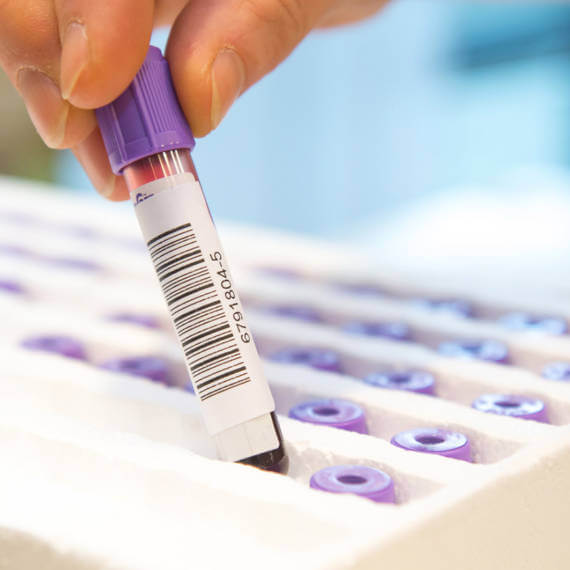The PAPP-A test – what is it and why should it be done?
The PAPP-A test is one of the prenatal tests that aims to assess the risk of your baby having a genetic condition. Find out when you should take the PAPP-A test, how it works and which genetic diseases can be detected by taking the PAPP-A test.
What is the PAPP-A test?
According to the recommendations of the Polish Gynaecological Society, the PAPP-A Test is recommended for all pregnant women, regardless of age. The PAPP-A test simultaneously assesses the measurement of NT (nuchal translucency) of the fetus on ultrasound with a CRL between 45 and 84 mm and the concentration of protein A and the hormone free subunit β-hCG in the pregnant woman’s serum. What abnormalities in the baby’s genetics can the PAPP-A test detect?
- Trisomy of chromosome 13, or Patau syndrome. This is one of the most severe genetic abnormalities, and manifests itself in low birth weight, reduced muscle tone, skin defects of the scalp, abnormal division of the forebrain, abnormalities in the organs of vision, abnormalities of the shape of the face, as well as defects of the heart, kidneys and other internal organs.
- Trisomy of chromosome 18, or Edwards syndrome. This genetic condition manifests itself as a low birth weight baby, deformities of the head, face and skull, and abnormalities of the heart, lungs, and kidneys. Edwards syndrome often ends in miscarriage.
- Trisomy of chromosome 21, or Down syndrome. The most common defect caused by an abnormal number of chromosomes. It manifests as reduced intellectual ability. People with Down syndrome also have an increased risk of heart disease.
When should the PAPP-A test be carried out?
The PAPP-A test must be performed between 11.6 – 14 weeks of pregnancy. This is when the so-called nuchal translucency is best visible in the foetus, on the basis of which the gynaecologist assesses the risk of genetic alterations.
What is PAPP-A?
It is a non-invasive test that is performed during a standard visit to the gynaecologist during pregnancy. The baby is examined using an ultrasound scanner (USG). During the examination, the doctor assesses the nuchal translucency, i.e. the layer of fluid under the skin tissue on the fetal neck, as well as the shape and normal development of the nasal bone. This means that the examination is completely non-invasive and completely safe for the baby.
What is tested in the woman’s blood?
The mother’s blood is then taken. Substances are read from it, which are markers of the aforementioned genetic defect syndromes. During the blood test, it is determined:
- what concentration of protein A is present,
- in what quantity free beta HCG is present, which is the unit found in the serum of the pregnant woman.
Precisely because two indicators are tested, professionals call the test a double PAPP-A test. It is very important that the blood results are taken on the same day as the fetal ultrasound. During the blood test, factors such as the age of the mother, the stage of pregnancy and any obstetric history are taken into account.
When do the results show the risk of genetic diseases?
Maternal biochemical results should be consulted with the doctor. Approximately 7-10 days after the test, the patient will receive quantitative results expressed in the international unit IU/l. However, these indications are not authoritative. The quantitative result must be recalculated by the doctor into a population reference, expressed in MoM unit. Only then is he able to determine the risk of genetic alterations.
Indications confirming the risk of genetic defects
- Down syndrome – the free HCG value is greater than 2.52 MoM, while the PAPP-A value is below 0.5 MoM.
- Edwards and Patau syndromes – free HCG and PAPP-A values fall below 0.33 MoM.
Women with results indicating an elevated risk may further opt for invasive testing.
Who should have the test and is it reimbursed?
PAPP-A testing should be performed by any woman who:
- has become pregnant after the age of 35,
- has previously given birth to a child with a genetic condition,
- has a family member who has given birth to a child with a genetic defect,
- has a known abnormality in the number of chromosomes,
- has an abnormal ultrasound result.
It is women who meet at least one of these conditions who are covered by the PAPP-A test reimbursement programme. The test can, of course, be carried out by any woman who becomes pregnant, but then the costs are borne individually.
